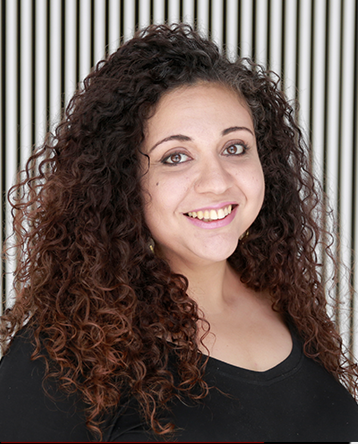Dina El-Zanfaly
Assistant Professor, School of Design
Assistant Professor, School of Design

Dina El-Zanfaly is a computational design and interaction researcher and an Assistant Professor in the School of Design at Carnegie Mellon University (CMU). She currently directs a research lab that she recently founded, hyperSENSE: Embodied Computations Lab.
The lab's research focuses on new roles of computational design and physicality in embodied sense-making, including human perception, cognition, and experience. El-Zanfaly and her students study the agency of computational creative modes of production and the emerging social, cultural, and technological behaviors resulting from introducing them. She mainly investigates computational methods to augment our sensory experiences. She investigates designing interactions with intelligent systems from a critical human-centered lens. These interactions include hybrid environments, artifacts, computational methods, and co-creation and designing tools. We investigate the questions of: how can intelligent machines and systems learn from us and how can we learn from them? How can we work together to create and improvise?
Her research focuses on creating interactions, through a blend of computation and embodiment lenses, to enable others to create on their own. These interactions seek creating new ways for us to understand our sensory experience. In other words, her research empowers both designers and non-designers to shape experiences of products, social environments, and interconnected technologies on their own.
Before joining CMU, El-Zanfaly worked as a research associate at MIT Design Lab, formerly known as the Mobile Experience Lab at the Media Lab at MIT, where she worked on projects in the lab that focus on designing human-centered connected objects, interactions, services and user experiences. She worked as a visiting assistant professor at Northeastern University's College of Arts, Media and Design. She also collaborated with Azra Aksamija on an art installation at MIT called “Memory Matrix,” which recreated parts of cultural heritage digitally and physically through community workshops.
She earned her Ph.D. degree from the Design and Computation group at the Massachusetts Institute of Technology, where she also earned her Master of Science in Design and Computation while being a Fulbright scholar. She is also a co-founder and co-director of Fab Lab Egypt (FLE), the first community maker space in northern Africa and the Arab world.
She co-established the Computational Making Group at MIT, an interdisciplinary research group that examines the relationship between the theories, mathematical models and formalisms of abstract computation and active making of spaces, structures, and human experiences. She has recently chaired Fab15 in Egypt, the fifteenth annual global Fab Labs conference. In summer 2019, approximately six hundred people from Fab Labs from around the world convened in Egypt to share their experiences, research and projects. She has been recently invited to join the program committee of the eleventh edition of the Desform conference, Design and Semantics of Form and Movement. The conference explores the implications of recent and emerging technological transformations in the practice of design.